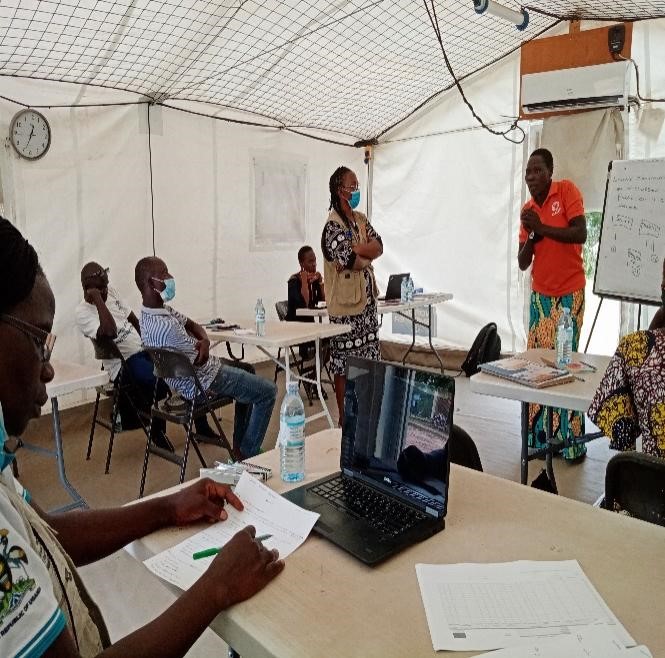Empowering Communities
Empowering Through Recruitment and Training
In August 2022, CEPADWN made significant strides in empowering communities through strategic recruitment and comprehensive training programs. A notable success was the recruitment of six Community Based Workers (CBWs)—three males and three females—selected from 39 applicants. These CBWs were meticulously chosen for their potential to make a positive impact and were oriented on CEPADWN’s organizational policies and the APEAL IV project.
Supported by Care International in Uganda, the CBWs underwent intensive training covering Menstrual Hygiene Management (MHM), Sexual Reproductive Health (SRH), community mobilization, and effective reporting. This training, inaugurated by UNHCR and OPM representatives and concluded by the Community Development Officer (CDO) of Odupi sub-county, laid a solid foundation for the CBWs to engage effectively with the communities.
Building Community Trust and Participation
Understanding the importance of community involvement, CEPADWN organized entry meetings to introduce the project to local leaders and community members. These meetings, held in Zone One and the surrounding host communities, addressed crucial issues such as MHM and the innovative B-Free Cup for menstrual hygiene management. The response was overwhelmingly positive, with 291 participants, including RCWs, Women Representatives, Youth Leaders, Block leaders, and more, actively engaging in discussions.
Leaders from the community pledged their full support, recognizing the project’s potential to improve the lives of young girls and women by reducing early pregnancies and school dropouts. This collective commitment marks a significant milestone in fostering community ownership and participation in CEPADWN’s initiatives.
Strengthening Partnerships for Greater Impact
CEPADWN’s active participation in coordination meetings with OPM, UNHCR, and other partners highlights the organization’s dedication to addressing complex issues affecting the communities. Key discussions included improving GBV case management, ensuring adherence to referral pathways, and dispelling harmful misinformation about resettlement.
These collaborative efforts have not only strengthened CEPADWN’s network but also enhanced the effectiveness of service delivery, ensuring that the needs of the most vulnerable are met with precision and care.
Leadership Training: A Step Towards Sustainable Change
Training community leaders is pivotal in CEPADWN’s strategy to create sustainable change. In August, twenty community leaders were trained on MHM, SRH, GBV, and their roles in supporting women and girls. The training, supported by OPM, UNHCR, and the CDO of the sub-county, was a resounding success, with leaders pledging to work closely with CEPADWN to support young girls and women.
This commitment from community leaders signifies a critical step towards building a supportive environment that empowers women and girls, ultimately contributing to a reduction in early pregnancies and school dropouts.

